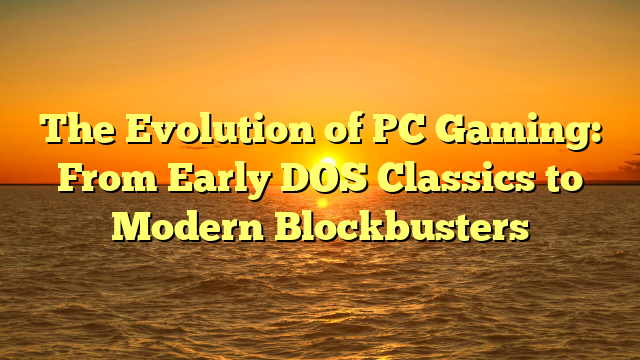PC gaming has undergone extraordinary transformation over the past four decades, evolving from simplistic DOS-based titles to visually breathtaking tevitoto experiences powered by advanced GPUs and physics engines. In the early 1990s, PC games like Doom, Wolfenstein 3D, and StarCraft demonstrated how computers could deliver deeper and more complex gameplay than most consoles of the time. These titles cemented the PC platform as a home for innovation, modding culture, and competitive strategy-based gaming.
As technology progressed, graphics cards and processors became powerful enough to render environments with stunning realism. The arrival of Half-Life 2, The Elder Scrolls IV: Oblivion, and Crysis marked a turning point, showcasing physics simulations, open-world exploration, and detailed textures that consoles struggled to match. The phrase “Can it run Crysis?” became a cultural meme representing the extreme graphical standards set by PC hardware.
Another major evolution came from online gaming. PC players gained access to massive multiplayer universes long before consoles, with games like World of Warcraft, Guild Wars, and Counter-Strike. These titles built global communities, esports ecosystems, and digital economies. Steam’s debut changed distribution forever, creating the largest digital library and making indie games accessible on a massive scale.
Today, PC gaming continues to dominate in flexibility and customization. Modern titles like Cyberpunk 2077, Baldur’s Gate 3, and Starfield leverage high-end CPUs, ray tracing, and DLSS to deliver cinematic quality. Players can adjust every visual setting, choose peripherals, and mod virtually any game to fit their preferences.
The PC platform also fosters innovation through early access programs, community modding, and open ecosystems that encourage creativity. From classic RTS to immersive simulations and VR experiences, the PC remains the most versatile gaming environment. As cloud gaming grows and hardware becomes more efficient, the future promises even greater accessibility and graphical fidelity, solidifying the PC as a core pillar of gaming history and progress.
